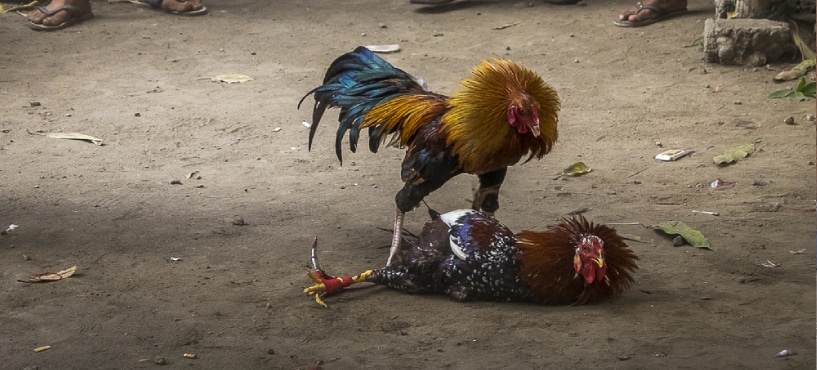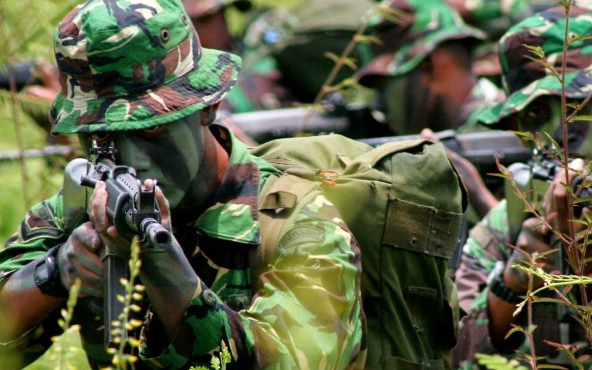Cockfighting, known as “tajen” in Bali, is a practice deeply embedded in the island’s culture and history. While it is controversial and often associated with issues of animal welfare and legality, it remains an integral part of Balinese tradition, particularly in religious and social contexts. This article explores the origins, cultural significance, and current status of cockfighting in Bali, highlighting the balance between tradition and modernity.
Introduction
Bali, an Indonesian island renowned for its vibrant culture and traditions, has a long history of cockfighting. This practice is more than just a sport or a form of entertainment; it is a ritual with deep cultural and religious significance. However, it also faces significant criticism and legal challenges in contemporary times. This article delves into the multifaceted nature of cockfighting in Bali, examining its historical roots, cultural importance, and the ongoing debates surrounding it.
Historical and Cultural Significance
Origins
The origins of cockfighting in Bali can be traced back to ancient times. It is believed to have been practiced for over a thousand years, intertwined with the island’s Hindu-Balinese culture.
- Ancient Traditions: Historical records and archaeological findings suggest that cockfighting has been a part of Balinese society for centuries, often associated with religious and agricultural rituals.
- Symbolism: In Balinese culture, the cock symbolizes courage, virility, and strength. Cockfights were historically seen as a way to appease spirits and ensure good fortune and prosperity.
Religious Context
Cockfighting holds significant religious importance in Bali, particularly in the context of Hindu rituals and ceremonies.
- Tabuh Rah: This is a ceremonial cockfight that forms part of many Balinese Hindu temple ceremonies. The fight is a symbolic blood sacrifice to purify the temple and appease evil spirits, ensuring harmony and balance.
- Offerings: The blood from the cockfight is considered a sacred offering. It is believed to cleanse the temple and ward off negative energies.
Social and Communal Role
Cockfighting also plays a crucial role in the social and communal life of Balinese villages.
- Community Bonding: Cockfights are social events that bring communities together. They serve as a platform for social interaction, reinforcing community bonds and collective identity.
- Economic Activity: Cockfighting can be a significant source of income for some Balinese people, with money wagered and earned through breeding and training fighting cocks.
The Practice of Cockfighting
The actual practice of cockfighting involves several stages, from breeding and training the cocks to the fights themselves.
Breeding and Training
Raising a fighting cock is a meticulous process that requires significant time, effort, and expertise.
- Selection: Only the best cocks, often from specific bloodlines known for their fighting prowess, are chosen for breeding.
- Training: Cocks undergo rigorous training regimens to enhance their strength, agility, and combat skills. This includes special diets, exercise routines, and mock fights.
The Fight
Cockfights are typically organized in an arena, with specific rules and customs governing the matches.
- Preparation: Before the fight, cocks are fitted with sharp blades, called taji, attached to their legs to increase the lethality of the encounter.
- The Match: The fight continues until one cock is either killed or incapacitated. These matches can be brutal and result in serious injury or death for the birds.
- Betting: Betting is a common and integral part of cockfighting, with significant sums of money often wagered on the outcomes.
Contemporary Issues and Controversy
Despite its cultural significance, cockfighting in Bali is not without controversy, facing significant ethical and legal challenges.
Animal Welfare Concerns
The practice of cockfighting raises serious animal welfare issues, attracting criticism from animal rights organizations and advocates.
- Cruelty: Critics argue that cockfighting is inherently cruel, subjecting animals to unnecessary pain and suffering for entertainment and financial gain.
- Ethical Debates: The ethical implications of using animals in such a violent manner are a subject of ongoing debate, both within Bali and internationally.
Legal Status
Cockfighting in Bali operates in a legal gray area, with regulations often varying and enforcement inconsistent.
- Indonesian Law: Cockfighting is technically illegal under Indonesian law, particularly in the context of gambling. However, cultural exceptions are sometimes made for traditional and religious practices like Tabuh Rah.
- Enforcement: Enforcement of the laws against cockfighting can be inconsistent, with some authorities turning a blind eye due to the practice’s deep cultural roots.
Modern Adaptations and Changes
In response to legal pressures and changing societal attitudes, the practice of cockfighting in Bali is undergoing transformations.
- Regulated Events: Efforts are being made to regulate and control cockfighting, ensuring that it is conducted within certain legal and ethical boundaries.
- Awareness Campaigns: Animal welfare organizations are working to raise awareness about the cruelty involved in cockfighting, advocating for alternative cultural practices that do not involve animal suffering.
Conclusion
Cockfighting in Bali is a complex and multifaceted practice, deeply embedded in the island’s cultural and religious traditions. While it continues to play a significant role in Balinese society, it also faces substantial ethical and legal challenges. The future of cockfighting in Bali will likely involve a delicate balance between preserving cultural heritage and addressing modern concerns about animal welfare and legality. As Bali navigates this intricate landscape, the dialogue between tradition and change will continue to shape the island’s cultural identity.
Understanding the cultural significance of cockfighting in Bali requires a nuanced perspective that respects its historical roots while also acknowledging the need for humane and ethical practices in contemporary society.





